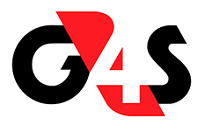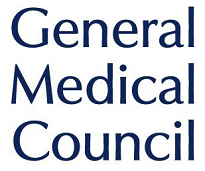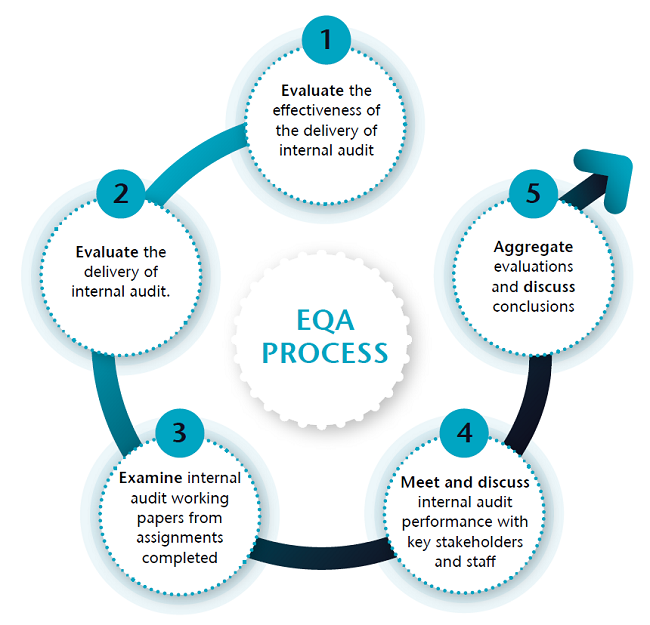External quality assessment
What is an EQA?
An external quality assessment, or EQA, evaluates conformance with the International Professional Practices Framework (IPPF), which includes the Code of Ethics, the Core Principles, the Definition of Internal Audit and the International Standards for the Professional Practice of Internal Auditing (the IIA Standards).
We will also, as appropriate, review conformance with the Public Sector Standards (PSIAS), Internal Audit Code of Practice guidance on effective internal audit in the private and third sectors, and Internal Audit Financial Services Code of Practice guidance on effective internal audit in the financial services sector.
Read our 2022/23 Internal Audit Performance report which is a summary of the EQAs undertaken by the Chartered IIA and discover why internal audit performance matters.
Why do you need an EQA?
Five reasons why you need an EQA:
- To adhere to standards
- To provide independent assurance
- To raise the profile of internal audit activity within your organisation
- To benchmark your activities against best practice
- To improve the performance of your internal audit function
Why choose us?
Top reasons why you should work with us and what we offer:
- Standard setting: As advocates of the IIA standards, we’re ideally placed to support you in conducting EQA reviews
- Independence: We are independent of any other organisation and because we set the standards, we truly understand them
- Flexibility: Our highly qualified and experienced reviewers deliver bespoke reviews to match your requirements
- Objective: We have no vested interest beyond promoting and developing the profession
- Transparency: We take an open, pragmatic, and collaborative approach to discussing ideas
How are EQAs carried out?
Through a five-stage structured approach that assesses the performance of internal audit in line with best practices standards and procedures.
The five-stage process is as follows:
- Evaluate the effectiveness of the delivery of internal audit
- Evaluate the delivery of internal audit
- Examine internal audit working papers from assignments completed
- Meet and discuss internal audit performance with key stakeholders and staff
- Aggregate evaluations and discuss conclusions
Below is a more detailed example example of how the EQA process works (click thumbnail to enlarge image).
Which service is right for you?
Remote readiness assessment
In response to the need for virtual working, CAEs can opt for a remote health check in advance of a full EQA. We use established, secure technology for video conferencing and file sharing.
After a high-level assessment, the reviewer provides feedback on the readiness of the function for an EQA and, where appropriate, suggests immediate actions to avoid non-conformance.
On-site readiness assessment
Preparation for a full EQA, with a high-level evaluation of the foundations and attributes of the internal audit activity to highlight potential conformance risks. The reviewer will also offer guidance on how to begin to address any identified issues and improve effectiveness.
Full EQA
Our EQA reviewers will provide a comprehensive assessment that involves surveys and interviews with a range of stakeholders including the CAE, internal audit staff, audit committee chair and members and internal audit customers. This also includes a detailed examination of the internal audit approach and methodology leading to the completion of an independent report which is presented to the audit committee. We adopt a collaborative approach to deliver the best outcome for the organisation, the internal audit activity and the profession.
Validated self-assessment
Evaluation of a self-assessment carried out by the CAE. We will review evidence and conduct interviews with senior management and the chair of the audit committee. A free self-assessment checklist is available to members.
Follow up review
We’ll assess your implementation of EQA action points and acknowledge the progress you've made since your last review. Members can benefit from a free self-assessment check list, a great resource to help prepare for an EQA or to benchmark the quality of your current internal audit process.
Download our free self-assessment checklist and benchmark the quality of your internal audit operation.
You can also download our new self-assessment checklist for the new Global Internal Audit Standards. This is the first version, more versions will follow as other guidance is published including the Code of Practice.
Book an EQA or find out more
Drop our Professional Services Manager, Kevin Grimwood, an email with any questions you have or to request a quote. His email address is Kevin.grimwood@iia.org.uk. Alternatively, you reach him by phone on 0207 819 1945.
Further details of what to expect can be found in our FAQ section.
Further reading
Here are some useful benchmarking documents and materials:
- Definition of internal auditing – the fundamentals
- Mission statement
- Core principles
- Code of ethics – behaviour
- International Standards – principles and basic requirements of the professional practice of internal auditing
- Quality and the International Standards – conformance
- Quality assurance and improvement programmes – useful approaches
- Implementation guidance – methods and approaches for applying the IPPF
- Supplemental guidance – tools, techniques and step-by-step approaches











